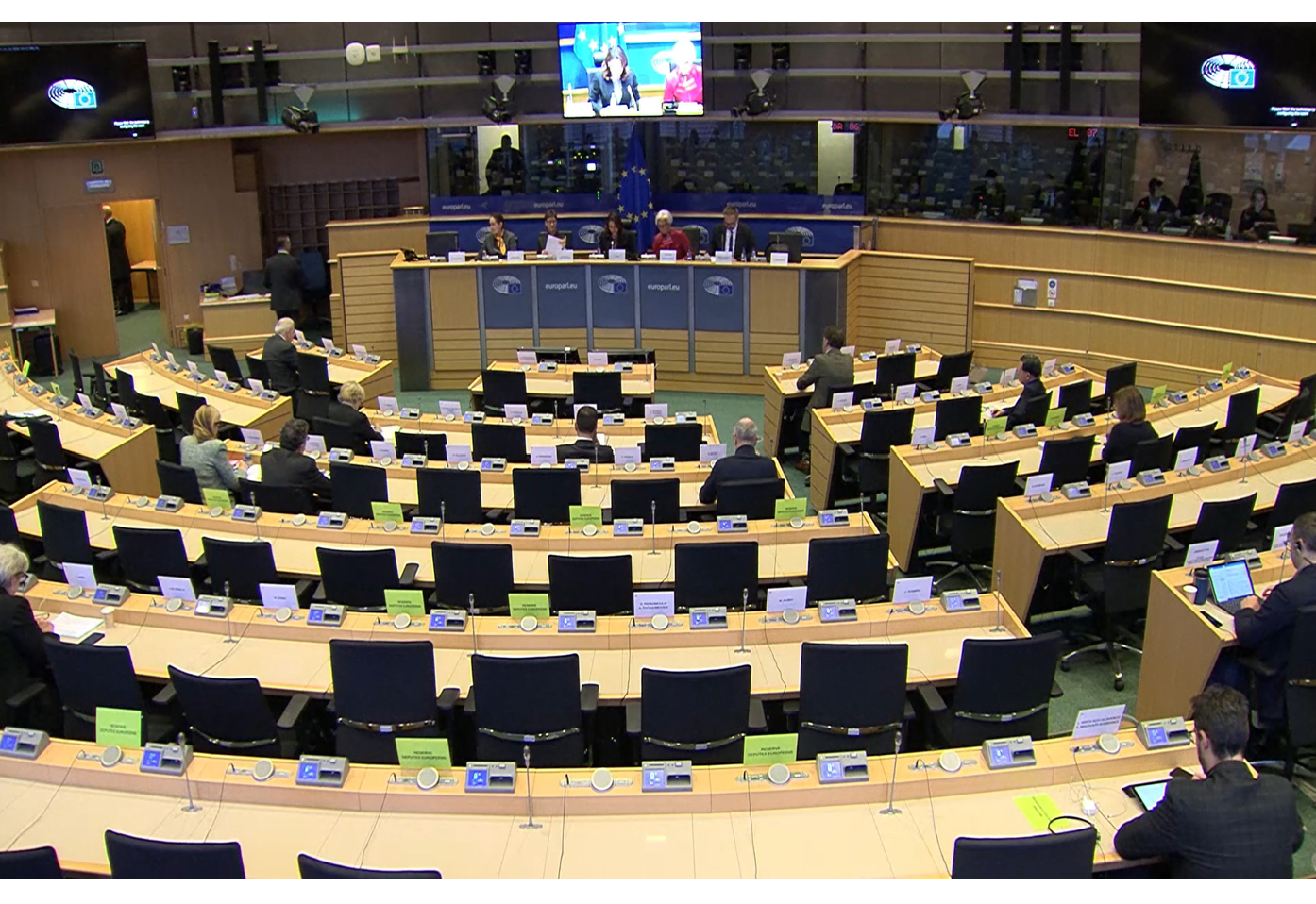
Considering its primary objective of maintaining financial stability in the 19 national economies it oversees, the European Central Bank (ECB) proposal for a 'risk-free' payment mechanism in the form of a central bank digital currency seems to be failing all parties in its current form.
Despite having divergent perspectives, all the euro experts invited to speak by the Committee on Economic and Monetary Affairs (ECON) this week considered that, as it stands, the digital euro is quite unattractive.
The differing opinions about how to make the digital currency more attractive largely seem to come down to the setting of holding limits. The amount of central bank money a user can hold is pivotal to the structure of the digital euro as it sets the balance of several dynamics, such as privacy vs. money laundering, competitiveness vs. monopolization of the payment system, regulation vs. deregulation of the banking sector, and monetary stability vs. instability.
The monetary union's CBDC will not provide any type of financial service, meaning that, if the ECB sets a low holding limit for deposits people will not have enough reason to use it, but if the Central Bank doesn't set a limit, banks potentially lose their key role as payment providers.
Invited by the committee to share his opinion, economist Ignazio Angeloni stated that, for now, there should be no CBDC in the monetary zone as "the intermingling of the central bank would disrupt the market."
According to the Italian professor, there is no valuable reason to turn the ECB from regulator to market participant as financial inclusion is "not important", the demise of cash is a "myth" and, despite the increasing dependency EU users have on foreign payment providers (Visa and Mastercard), keeping the strategic autonomy of the European Union is not a necessity.
However, former Bank of Spain governor Miguel Fernández Ordóñez identified a different issue: that banks are a permanent cause of instability in the eurozone's current financial system.
For institutions to be able to work as payment, credit, and risk providers, the market has become heavily regulated, strongly protected, and tremendously privileged. "At the moment we have an absurd system," he said.
A risk-free government alternative could foster growth in the banking sector, he said, and "level the playing field of effective competition". Holding limits should only be kept long enough for banks, "the losers" of the new status quo, to adapt to a system where they cease being intermediaries and the ECB, through the digital euro, becomes the ultimate payment institution.
Defending a pro-banking stance, Marieke Van Berkel, representing the European Association of Co-operative Banks (EACB), doesn't share Ordonéz's enthusiasm for setting fire to the current system. Although she believes that "we should be ready to accompany the change," that change should be within limits.
Van Berkel suggests that this level of change is unfeasible. Furthermore, she believes that the ECB's plan to make the digital euro "successful but not too successful" is fraught with problems. Either it doesn't give the digital currency enough added value to be introduced into the financial system or, if marketed as being safer than bank deposits are perceived to be, it creates a sense of distrust towards banks that puts them in a perilous position.
If the ECB were to drop the "not too successful" part of the digital euro proposal, then logically, holding limits ought to be removed at some point after implementation. While Van Berkel strongly opposes that option, the fourth expert heard at this week's public hearing, Vicky Van Eyck, executive director of Positive Money Europe, believes that that is the way to go.
In contrast to Angeloni, Van Eyck believes that financial inclusion is still an issue that needs addressing and that, rather than a "myth", the demise of cash is creating vulnerabilities in the payment system that could be successfully addressed by creating a digital cash option for citizens. Much like Ordonéz, she believes that the digital euro will open the payment system market to more intermediaries, thus increasing competition in the sector.
From strong supporters of a euro CBDC to outright opponents, all stances were heard during the public hearing, making it clear that the path of the "discussion phase" that kicked off this week is likely to be long and bumpy.

